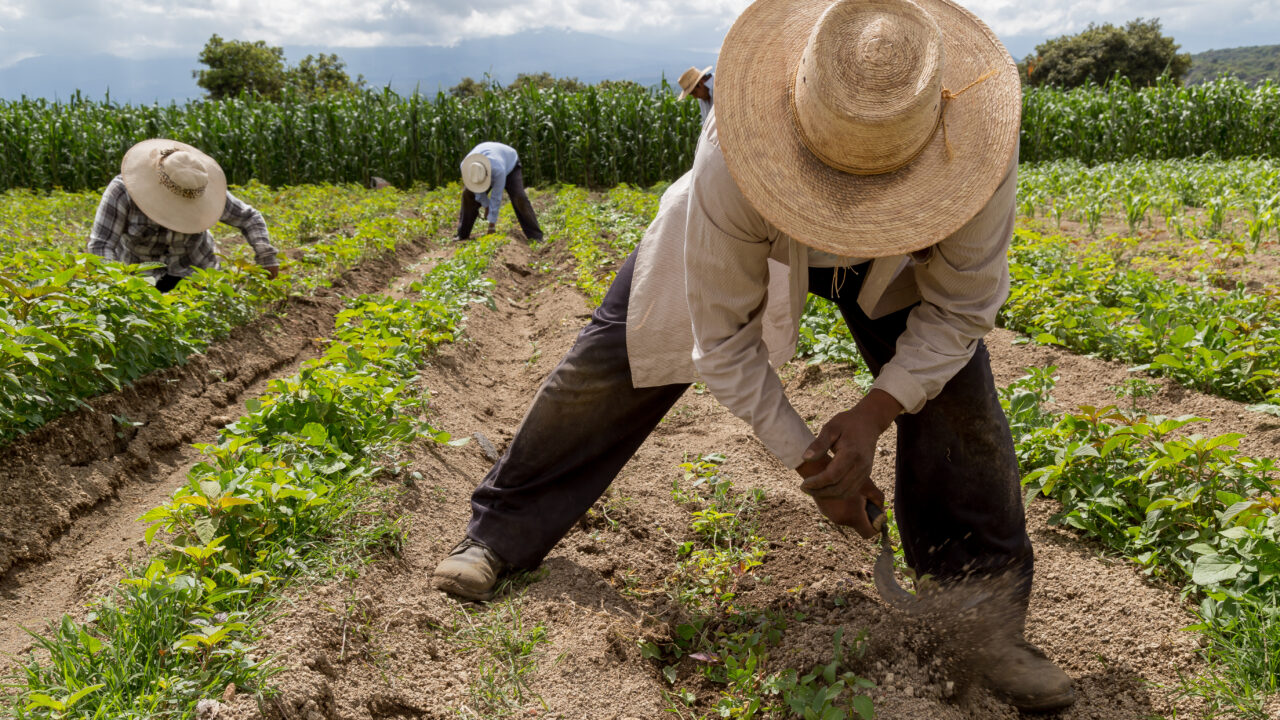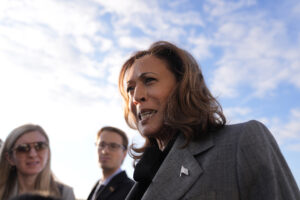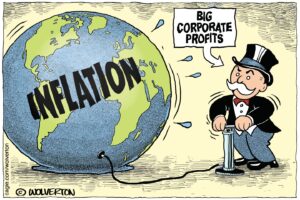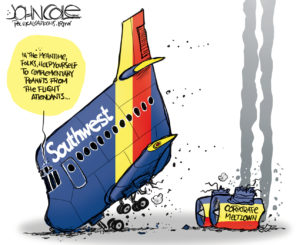Today’s Trade Agreements Benefit Corporate Profits, Not People
These treaties harm both farmers and consumers by squeezing food systems for maximum profit. Image: Adobe
Image: Adobe
This article first appeared in The Progressive.
Trade agreements are part of a global economy. The United States is party to fourteen international free trade agreements involving twenty countries. Note that they are “free” trade agreements, (which, in theory, are supposed to expand marketing opportunities for producers) not “fair” trade agreements. If they were “fair” trade agreements, producers would be paid a fair price no matter where they live or what they produced. In fact, these agreements do little to increase prices to small scale farmers, or wages for workers, because they do not directly enter the global market. Rather, their work, their production is sold into a consolidated market where the profit is sucked up by the multinational corporations – all at the expense of the people.
It is no secret that those agreements, negotiated between governments, are heavily influenced by corporate lobbyists to ensure that the regulation of pretty much everything—such as labor, food safety, the environment—will favor corporate profit above all else. And that, in sum, is the problem with free trade: a greater concern for making money than for the wellbeing of people, on both sides of the deal.
Because trade agreements cater to corporations, worker incomes are negatively impacted in both developed and developing nations. That said, the burden of these free trade agreements come to bear most heavily on the world’s poorest inhabitants. Profit comes by keeping wages low, centering pollution and environmental damage in the poorest countries, and by controlling the global food supply.
As noted by economist Joseph Stiglitz, “We could have ensured that globalization benefited all, but corporate greed was just too great.” Pitting workers around the world against each other will, of course, drive wages down—one of the results sought by multinational corporations.
“We could have ensured that globalization benefited all, but corporate greed was just too great.”
Control of the food supply was another goal, paying farmers as little as possible, managing their market access through consolidation, and selling through highly consolidated consumer markets to ensure maximum profit. Financial speculation in agricultural commodities and land, volatile weather, and people’s inability to determine where and how their food would be grown only exacerbated the problems caused by unfair trade.
“Hunger isn’t caused by a scarcity of food, but a scarcity of democracy,” writes Frances Moore Lappé of the Small Planet Institute.
Did we learn anything from the global food crisis of 2007 and 2008? Apparently not the lessons we should have. When commodity food prices on international markets in some cases doubled, causing food riots and starvation, farmers saw little price increase even as multinational corporations increased their profit margins. Corporate grain and meat processors are more consolidated and still make vast profits at the expense of farmers and consumer choice. Governments still use food as a weapon whether aimed very specifically, as in Gaza, or more broadly in wars and conflicts.
Perhaps rather than allowing those who control global markets to decide who will eat, what they will eat, where their food will be grown, and who will grow it, a different more democratic approach is needed. Food Sovereignty is a concept that allows people to make decisions about their food locally, for their benefit. Under this system, farmers and farm workers are valued for what they grow and the knowledge they pass on, and nature and the environment are respected as the source of life. In defining the concept of Food Sovereignty, economist Raj Patel noted that “People could eat well only if their governments were free to adopt policies that supported domestic production and consumption.”
* * *
Let’s end this foolishness of “feeding the world” a Western diet just because it’s profitable. Give peasant farmers, Indigenous farmers, and farmers of color the ability to farm their own land and feed their own communities. Loss of local control through “land grabs” worldwide holds small farmers and their communities captive in the global food economy.
Similarly, let local fisher folk have access to fishing grounds and the fair market access that is increasingly being denied through “ocean grabbing.” Whether in the Americas or off the Horn of Africa, local fisher folk are denied the right to make a living and feed their communities.
Give peasant farmers, Indigenous farmers, and farmers of color the ability to farm their own land and feed their own communities.
Resistance to corporate domination of food, unfair trade agreements, and efforts to protect food producers and consumers is gaining traction even in the partisan, grid-locked halls of Congress. The ARCTIC Act, introduced by Senator Lisa Murkowski, Republican of Alaska, supports Alaska’s farmers, fishers, and local food. And a rare bipartisan effort, mandatory country of origin labeling (MCOOL) sponsored by U.S. Senators John Thune, Republican of South Dakota; Jon Tester, Democrat of Montana; Mike Rounds, Republican of South Dakota; and Cory Booker, Democrat of New Jersey gives farmers and ranchers the right to use a United States “country of origin” label. Acts like these can begin to give people a connection to their food and those that produce it. People want and need to be part of a community that supports everyone.
Undoubtedly, corporate lobbyists are busily mounting their opposition to both acts because they protect local farmers, ranchers, fishers, and food systems—rather than corporate profit. Officially, Canada and Mexico previously filed disputes against U.S. Country of Origin labels on meat, and no doubt will again. Conversely, U.S. trade negotiators have filed a dispute against Canada for protecting their dairy farmers against U.S. dairy imports, as well as a dispute against Mexico for protecting Mexican farmers and consumers against U.S. imports of genetically modified (GM) corn.
Maybe the United States should stop forcing unwanted dairy into Canada and GM corn into both countries. Then Mexico might let U.S. farmers and ranchers label their meat so consumers could choose U.S.-grown meat. Seems like a win for food producers and consumers in all three countries.
And all of these measures are permissible within the text of the U.S.- Mexico-Canada trade agreement.
Your support matters…Independent journalism is under threat and overshadowed by heavily funded mainstream media.
You can help level the playing field. Become a member.
Your tax-deductible contribution keeps us digging beneath the headlines to give you thought-provoking, investigative reporting and analysis that unearths what's really happening- without compromise.
Give today to support our courageous, independent journalists.







You need to be a supporter to comment.
There are currently no responses to this article.
Be the first to respond.